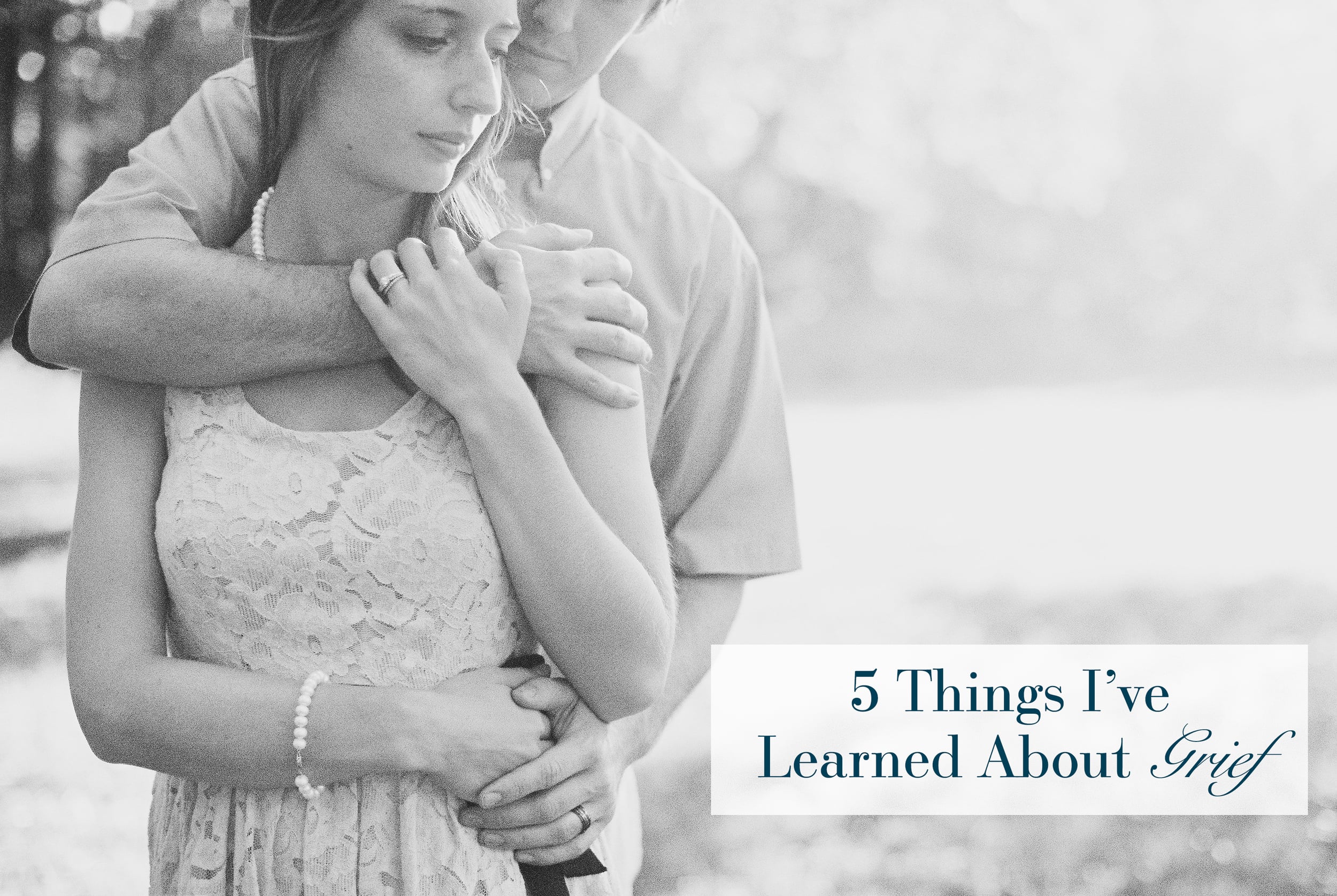Before the last few weeks of my life, I had never truly dealt with grief. I had been extremely sad over friends and family members passing away, some even unexpectedly, but I was certainly not prepared for the passing of our first son before he even took a breath (read the story here if you missed it). The grief that ensued in the weeks following was unlike anything I'd gone through before. In some ways I am still in the middle of working through this process, but over the last month I've learned some things I never thought I'd experience. Again, I'm writing this because I need to share it and it needs to be heard - and I hope you never have to go through true grief in your lifetime.
1) It will hit you at times you never expected.
In the weeks after Joel died, I would have moments of complete normalcy, followed unexpectedly by moments of intense sorrow. The first time I experienced this was the next day when I was working out at the gym. It hit me that I should have been at the hospital getting to know my boy, and I almost broke down in the middle of Planet Fitness. It happened countless more times as well - in public, in private, it didn't matter - and the grief often felt overwhelming. I'm thankful that I spent the first week or so with people who didn't mind a few tears.
2) You can't grieve alone.
This might not be everyone, but I actually couldn't grieve if nobody knew about it. I have a tendency to bottle up my emotions, which can be unhealthy, because they are beyond my control and I don't like that. The hidden blessing in having to tell several people about Joel's death was that it made me walk through the sorrow, which was both painful but therapeutic. I'm not 'over' the sadness and probably won't be for a long time, but if I had not been forced to re-live some of the painful parts, the grieving would have been delayed for months. Above all, though, I could not have walked through this without my faith in God, and His strength given to me each day. I will always be thankful that He walks this road with me.
3) You have to be both selfless and selfish.
We were blown away by the love we received from family and friends afterwards. We truly felt a community around us, lifting us up in prayers and support and gifts and flowers and meals. However, this required two things. First, we had to be a little selfish. This meant that when people wanted to do something for us, it would have been unkind to wave off their generosity. Nobody acted like they could fix our sorrow, because they couldn't, but not accepting the love of a community would have hurt both us and them. We also had to be selfless - I realized in the middle of the first week that there were people who needed us as much as we needed them. We had to let others know that it was ok to feel awkward, and not know what to say. Nobody could tell us it was ok, or it would get better, and we had to give them permission to do that, and even sometimes comfort others when they cried for us. It was both exhausting and humbling.
4) Sometimes, you don't want your grief to end.
This happened to me during the first week especially. I didn't want to feel normal. I didn't want to move on. My son had died, and I wanted to honor the heaviness of that statement. I think I dealt with it in a healthy manner - I was not morose, and I did not act like my whole life was over - but I refused to tell people I was ok if I wasn't. Because for a long time, and still some days, it's not ok. And that's normal. But I had to give myself permission to answer people honestly, not just in the way I used to before this all happened.
5) You may never 'move on,' but you have to move forward.
After a week, I was still sad. I still cried, and had grief. And I will for a long time. But a week after his death, I knew I had grieved. I knew how much I loved Joel, but I knew I had to start very slowly moving forward. I was afraid of moving on from him the first week, and acting like it never happened or it didn't impact me greatly. But the second week, I stopped needing to prove to myself how much I cared about him - it was already obvious. Life keeps moving forward, so I had to as well - all while giving myself permission to cry and grieve when I needed to as I moved forward.
My life is marked forever by what happened. It is not ruined, and it is not over, but a small piece of it was crushed when we sat in the hospital, staring at the doctor, hardly able to breathe or understand what he was saying. Grief is a strange and overwhelming thing, and it looks different on everyone. What I've learned will only allow me to be of comfort to those who are grieving in the future and while I never would have wished for this period in my life, I know I can move forward with compassion and love for those who are hurting. And for that, I am truly grateful.
If you missed the reason for this post, see Part 1 and Part 2 of our story.





